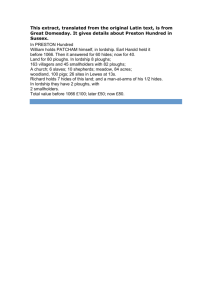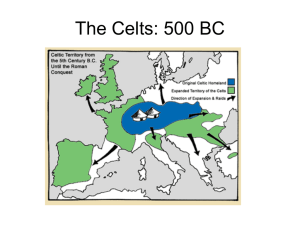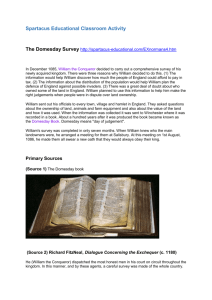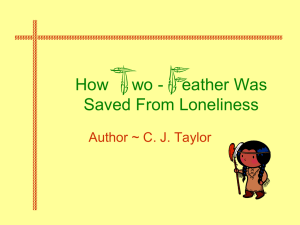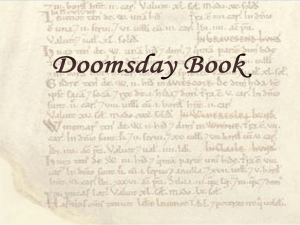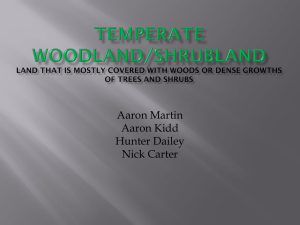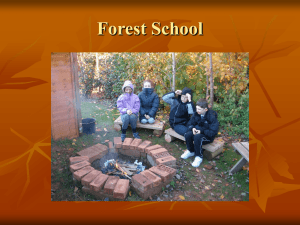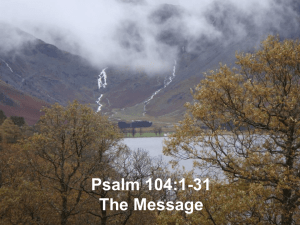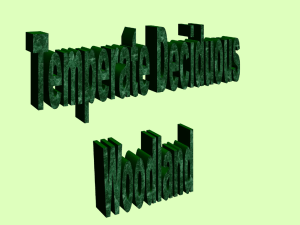File
advertisement
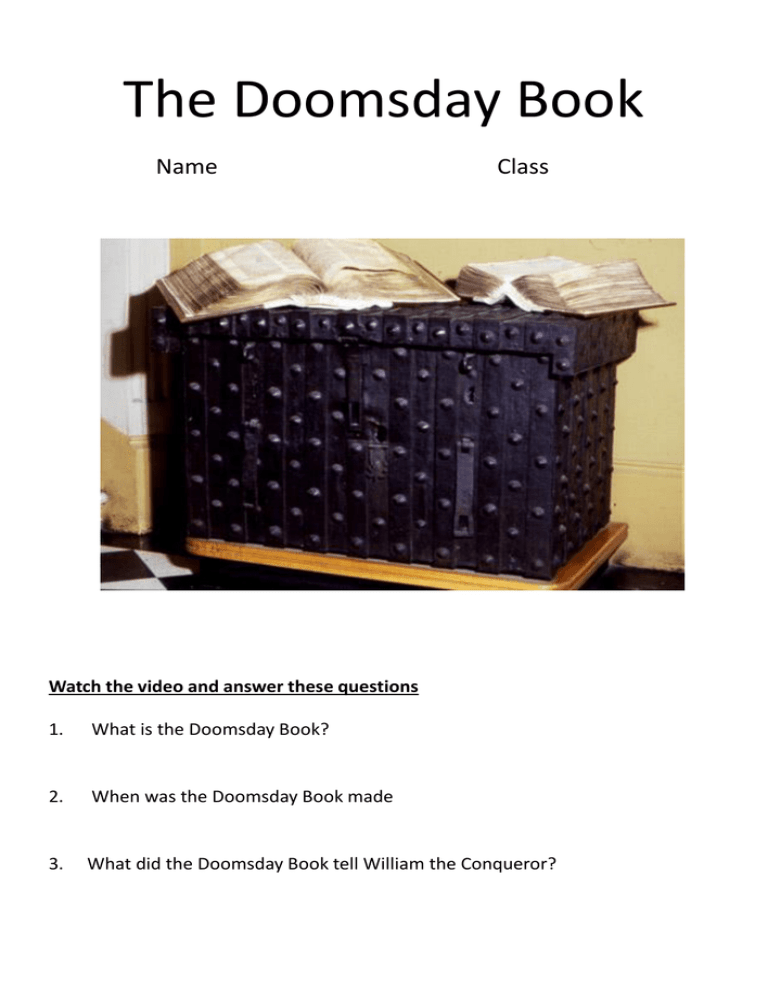
The Doomsday Book Name Class Watch the video and answer these questions 1. What is the Doomsday Book? 2. When was the Doomsday Book made 3. What did the Doomsday Book tell William the Conqueror? Activity 2 How many oxen are there in the village? Remember each plough is pulled by a team Who holds Patcham before and after 1066? of eight oxen Name TWO jobs, apart from ploughing, which this source How many people live reveals. What do you think the woodland was used for? in this village? In PRESTON Hundred William holds PATCHAM himself, in lordship. Earl Harold held it before 1066. Then it answered for 60 hides (An area of land); now for 40. Land for 80 ploughs. In lordship 8 ploughs; 163 villagers and 45 smallholders with 82 ploughs; A church; 6 slaves; 10 shepherds; meadow, 84 acres; woodland, 100 pigs; 26 sites in Lewes at 13s. Richard holds 7 hides of this land; and a man-at-arms of his ½ hides. In lordship they have 2 ploughs, with 2 smallholders. Total value before 1066 £100; later £50; now £80. Plough = an area of land that can be farmed by oxen (cows) Hide = an large area of land that could be taxed Shepherd = A person who looks after, herds, guards and flocks sheet Man at Arms = A Knight 1. What was the value of the land in1066? What had happened to its value by 1086? 2. Make a list of all the people in the village, starting with those who hold the most land and ending with the poorest members of the village. 3. Why do you think William was interested in knowing the value of land? Activity 3 Source A Geoffrey de Mandeville holds Clapham. Turbern held it from King Edward. There is land for 7 ploughs. There are 8 villeins, and 3 bordars (the poorest villagers) with 5 ploughs. There are 5 acres of meadow. In the time of King Edward it was worth £10, now £7.10s. Source B In the vill in which St. Peter's Church is situated [Westminster] the abbot of the same place holds 13½ hides. There is land for 11 ploughs. To the demesne belongs 9 hides and 1 virgate, and there are 4 ploughs. The villeins have 6 ploughs, and there could be 1 plough more. There are 9 villeins each on 1 virgate and 1 villein on 1 hide, and 9 villeins on each half a virgate and 1 cottar on 5 acres, and 41 cottars who pay 40 shillings a year for their gardens. [There is] meadow for 11 ploughs, pasture for the livestock of the vill, woodland for 100 pigs, and 25 houses of the abbot's knights and other men who pay 8 shillings a year. In all it is worth £10; when received, the same; TRE £12. This manor belonged and belongs to the demesne of St. Peter's Church, Westminster Source C The King holds in demesne Earley. Almar held it in alod from King Edward. Then at 5 hides, now for 4 hides. Land for use by 6 ploughs. In demesne 1 plough and 6 villeins and 1 bordar with 3 ploughs. There are 2 slaves and 1 site in Reading and 2 fisheries worth 7s and 6d and 20 acres of meadow. Woodland for 70 pigs. At the time of King Edward it was worth 100s, and afterwards and now it is worth 50s. 1. 2. 3. Doomsday Book Analysis Doomsday Book Points Useful Yes Useful No It records only the men in a village, not the women, children or relatives It tells us that most of the land was owned by 200 Normans, the Church or King William. They had taken it from over 2000 English English after 1066. It does not tell us how ordinary people thought, what their homes were like or what clothes they wore It does not include a survey of London, Northumberland or much of Northern England and only some of Wales It showed that the total value of England was £37,000, this was a very large amount considering £10 made you rich! It showed how there were few towns, lots of meadows and woodland, plenty of farm animals and most people worked by farming the land Now write a paragraph on whether you think the Doomsday Book could be useful to a Historian studying life in the Middle Ages
